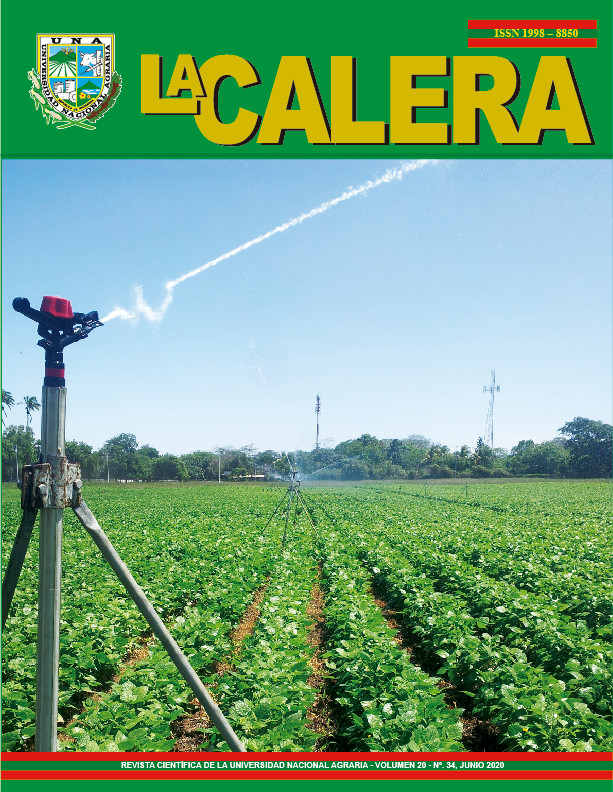Interactions between the endophytic fungus Fusarium oxysporum strain 162 and the endophytic bacterium Rhizobium etli strain G12
DOI:
https://doi.org/10.5377/calera.v20i34.9601Keywords:
Biological control, induced resistance, inhibition, simultaneous treatments, bioassaysAbstract
Non-pathogenic Fusarium strains are important to crop production, since some of them have shown to induce resistance in colonized plants; thus, increasing the plant’s ability to defend itself from pathogen and pest attack. Endophytic bacteria groups, as rhiozobacteria, are able to stimulate plant growth and resistance to pest and diseases also. Nevertheless, the inconsistency in the level of biocontrol of pest and diseases -often associated with simultaneous application of microorganisms to plants- is considered a limiting factor when using antagonistic fungi and bacteria for plant protection. Therefore, the present investigation evaluates the in vitro and in vivo interactions between the endophytic fungus Fusarium oxysporum strain Fo162 and the endophytic bacterium Rhizobium etli strain G12. The results indicate that the bacteria caused a significant reduction of the fungi radial growth, and thus its capacity of root colonization. This suggest that before using simultaneous inoculation of these beneficial microorganisms as a strategy of biological control, their compatibility should be evaluated.
Downloads
1183
HTML (Español (España)) 381
EPUB (Español (España)) 262
XML (Español (España)) 309

